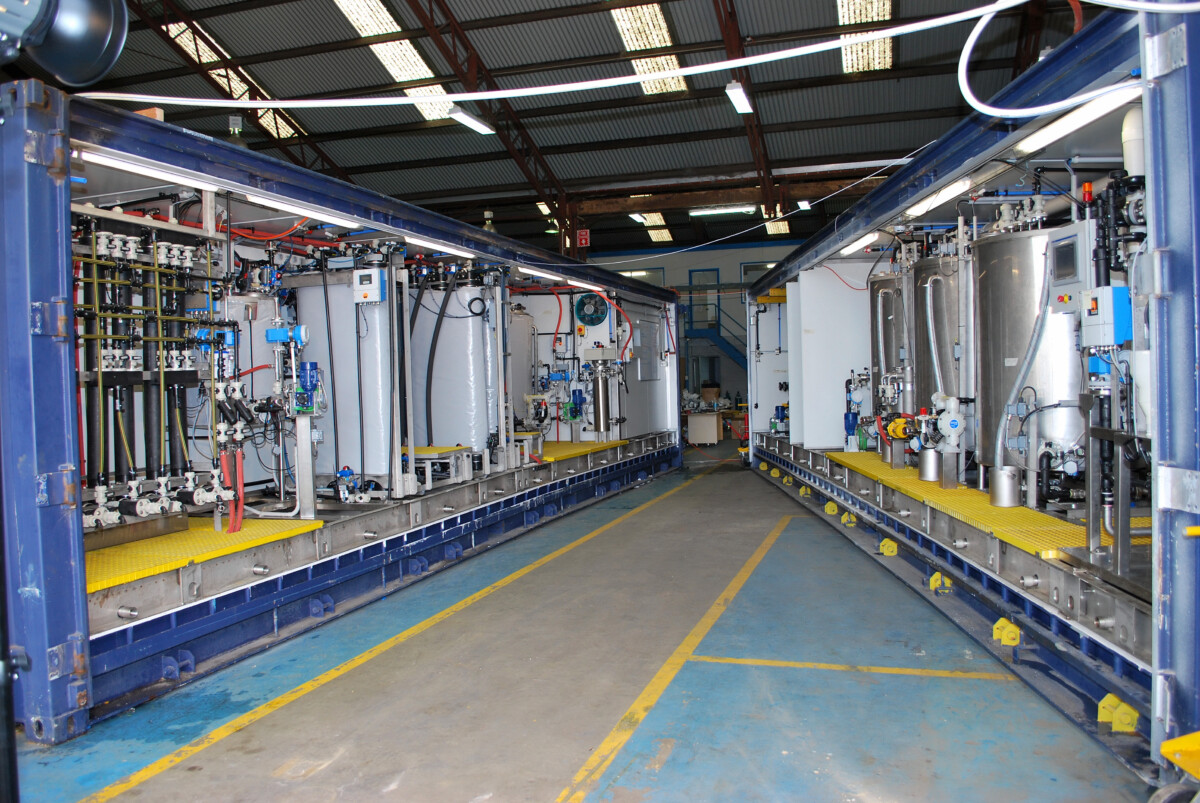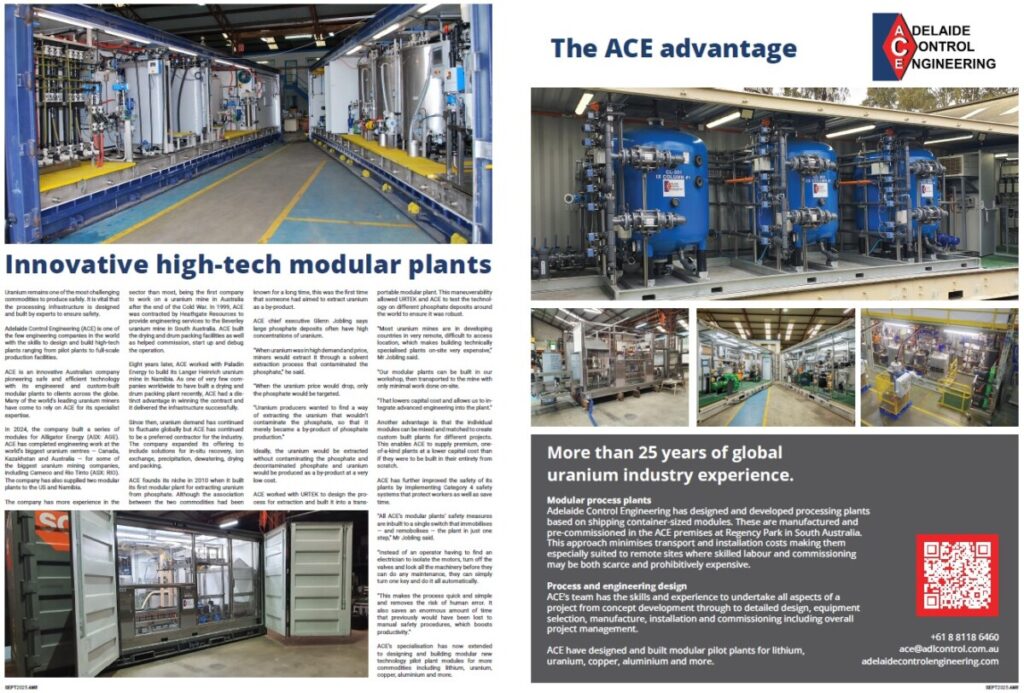Innovative high-tech modular plants

Uranium remains one of the most challenging commodities to produce safely. It is vital that the processing infrastructure is designed and built by experts to ensure safety.
Adelaide Control Engineering (ACE) is one of the few engineering companies in the world with the skills to design and build high-tech plants ranging from pilot plants to full-scale production facilities.
ACE is an innovative Australian company pioneering safe and efficient technology with its engineered and custom-built modular plants to clients across the globe. Many of the world’s leading uranium miners have come to rely on ACE for its specialist expertise.
In 2024, the company built a series of modules for Alligator Energy (ASX: AGE). ACE has completed engineering work at the world’s biggest uranium centres — Canada, Kazakhstan and Australia — for some of the biggest uranium mining companies, including Cameco and Rio Tinto (ASX: RIO). The company has also supplied two modular plants to the US and Namibia.
The company has more experience in the sector than most, being the first company to work on a uranium mine in Australia after the end of the Cold War. In 1999, ACE was contracted by Heathgate Resources to provide engineering services to the Beverley uranium mine in South Australia. ACE built the drying and drum packing facilities as well as helped commission, start up and debug the operation.
Eight years later, ACE worked with Paladin Energy to build its Langer Heinrich uranium mine in Namibia. As one of very few companies worldwide to have built a drying and drum packing plant recently, ACE had a distinct advantage in winning the contract and it delivered the infrastructure successfully.
Since then, uranium demand has continued to fluctuate globally but ACE has continued to be a preferred contractor for the industry. The company expanded its offering to include solutions for in-situ recovery, ion exchange, precipitation, dewatering, drying and packing.
ACE founds its niche in 2010 when it built its first modular plant for extracting uranium from phosphate. Although the association between the two commodities had been known for a long time, this was the first time that someone had aimed to extract uranium as a by-product.
ACE chief executive Glenn Jobling says large phosphate deposits often have high concentrations of uranium.
“When uranium was in high demand and price, miners would extract it through a solvent extraction process that contaminated the phosphate,” he said.
“When the uranium price would drop, only the phosphate would be targeted.
“Uranium producers wanted to find a way of extracting the uranium that wouldn’t contaminate the phosphate, so that it merely became a by-product of phosphate production.”
Ideally, the uranium would be extracted without contaminating the phosphate and decontaminated phosphate and uranium would be produced as a by-product at a very low cost.
ACE worked with URTEK to design the process for extraction and built it into a transportable modular plant. This maneuverability allowed URTEK and ACE to test the technology on different phosphate deposits around the world to ensure it was robust.
“Most uranium mines are in developing countries in very remote, difficult to access location, which makes building technically specialised plants on-site very expensive,” Mr Jobling said.
“Our modular plants can be built in our workshop, then transported to the mine with only minimal work done on-site.
“That lowers capital cost and allows us to integrate advanced engineering into the plant.”
Another advantage is that the individual modules can be mixed and matched to create custom built plants for different projects. This enables ACE to supply premium, one-of-a-kind plants at a lower capital cost than if they were to be built in their entirety from scratch.
ACE has further improved the safety of its plants by implementing Category 4 safety systems that protect workers as well as save time.
“All ACE’s modular plants’ safety measures are inbuilt to a single switch that immobilises — and remobolises — the plant in just one step,” Mr Jobling said.
“Instead of an operator having to find an electrician to isolate the motors, turn off the valves and lock all the machinery before they can do any maintenance, they can simply turn one key and do it all automatically.
“This makes the process quick and simple and removes the risk of human error. It also saves an enormous amount of time that previously would have been lost to manual safety procedures, which boosts productivity.”
ACE’s specialisation has now extended to designing and building modular new technology pilot plant modules for more commodities including lithium, uranium, copper, aluminium and more.

























